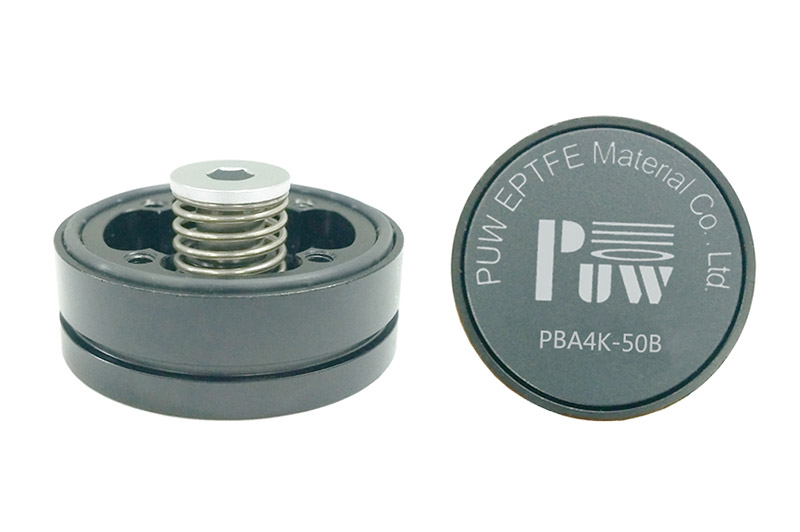Focus on PUW EPTFE Material Co., Ltd - Get to know the new information of the industry quickly!

2025-06-19 18:15:29
An Explosion-Proof Vent Valve (EPVV) is a specialized safety device designed to prevent catastrophic failures in pressurized systems by safely releasing excess pressure while containing potential explosions. These valves are engineered with robust materials and precise mechanisms to withstand extreme conditions, typically rated for pressures up to 10 bar (145 psi) and temperatures ranging from -40°C to +150°C (-40°F to 302°F).
Key technical specifications include:
Pressure Relief Range: 0.5 bar to 10 bar (7.25 psi to 145 psi), with ±2% accuracy
Flow Capacity: 50-5,000 m³/h (29.5-2,950 CFM) depending on valve size
Response Time: ≤ 5 milliseconds for rapid pressure equalization
ATEX Certification: Compliant with ATEX Directive 2014/34/EU for Zone 0/1 hazardous areas
Ingress Protection: IP66 or higher for dust and water resistance

Modern Explosion-Proof Vent Valves incorporate several critical design features:
| Feature | Technical Data |
|---|---|
| Material Construction | 316L stainless steel body with PTFE/Viton® seals (temperature resistant up to 200°C/392°F) |
| Explosion Containment | Withstands deflagration pressures up to 10 bar-g (145 psig) without rupture |
| Leakage Rate | ≤ 0.5% of rated capacity at 90% of set pressure (per API 527 standards) |
| Mechanical Life | ≥ 100,000 cycles without performance degradation |
| Flame Arrestor | Crimped metal ribbon design with 0.3mm gaps, quenching velocity > 30 m/s |
Explosion-proof vent valves are critical components in industries handling combustible materials:
Chemical Processing: Installed on reactors and storage tanks handling flammable solvents (e.g., ethanol, acetone) with flash points below 60°C (140°F). Valve sizes typically range from DN50 to DN400 (2" to 16").
Pharmaceutical Manufacturing: Used in fluidized bed dryers and containment systems where powder concentrations exceed 30 g/m³ (ST3 dust classification).
Oil & Gas: Protects offshore platform separators and pipeline pigging stations from hydrocarbon vapor explosions (MESG ≤ 0.9mm for IIA/B/C gases).
Grain Handling: Prevents dust explosions in silos with Kst values up to 300 bar·m/s (Class St3 dusts).
Wastewater Treatment: Safeguards anaerobic digesters producing methane (LEL 4.4% vol.) with corrosion-resistant 316SS construction.
Proper maintenance ensures reliable operation and compliance with safety standards:
Monthly Inspections:
Verify set pressure using calibrated test rig (±2% tolerance)
Check for seal leakage with bubble solution (max 5 bubbles/min per EN 13648-3)
Inspect flame arrestor elements for plugging (ΔP < 25 mbar at rated flow)
Annual Maintenance:
Disassemble valve and ultrasonically clean all components in solvent bath
Replace all elastomer seals (recommended service life: 5 years)
Recalibrate spring mechanism to original specifications (±1% accuracy)
Conduct hydrostatic test at 1.5x MAWP (Maximum Allowable Working Pressure)
Special Considerations:
For powder applications: Clean internal surfaces every 3 months to prevent material buildup exceeding 3mm thickness
In corrosive environments: Apply corrosion inhibitor (e.g., NACE-approved formulations) to external surfaces quarterly
After any activation: Perform full functional test and document in equipment log

Telephone: 0769-22850556
Email: lvch@puw-eptfe.com
Address: No.20, Wanjiang Industrial Street, Wanjiang District, Dongguan City, Guangdong Province, China
© 2026 PUW EPTFE Material Co., Ltd. All rights reserved.
Privacy policy | Terms and Conditions